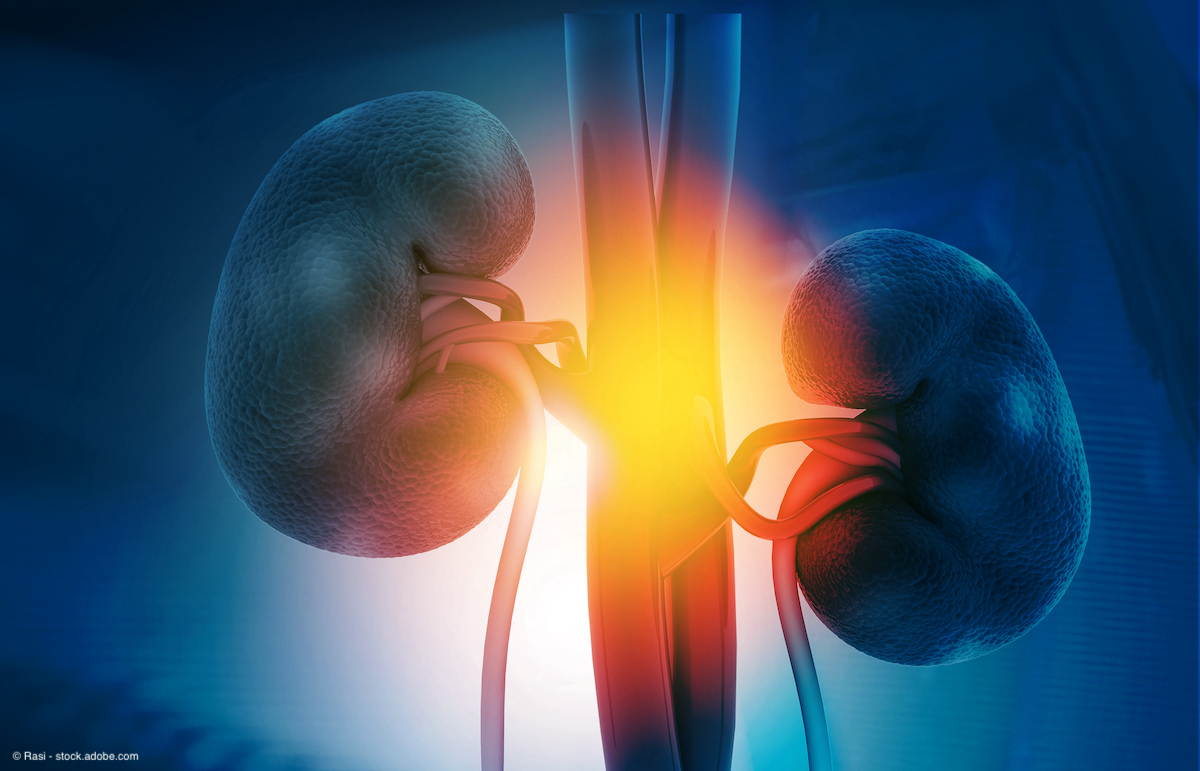Lumasiran shows durable efficacy in patients with advanced PH1
Data showed that plasma oxalate levels were maintained through 24 months of treatment with lumasiran.
Lumasiran (Oxlumo) demonstrated durable reductions in plasma oxalate levels among patients with advanced primary hyperoxaluria type 1 (PH1) with severe renal impairment, including those on dialysis, according to 24-month follow-up data from the phase 3 ILLUMINATE-C trial (NCT04152200).
The study is still ongoing as data are being collected up to 54 months as part of the trial extension period.

The data were presented at the 2023 American Society of Nephrology (ASN) Kidney Week in Philadelphia, Pennsylvania.1
The phase 3 open-label study assigned patients to 1 of 2 cohorts based on hemodialysis (HD) treatment status, with patients in cohort A (n = 5) having not received HD and patients in cohort B (n = 12) having received HD.
Data showed that plasma oxalate levels were maintained through 24 months of treatment with lumasiran. Further, noninvasive indicators of systemic oxalosis indicated stability through 24 months of treatment. In total, 4 patients underwent isolated kidney transplant, and all 4 remained on treatment with a functioning kidney graft.
The most common adverse events (AEs) reported were pyrexia in 38% of patients, diarrhea in 29% of patients, and injection-site reactions in 24% of patients. Overall, treatment-related AEs were reported among 33% of patients, with the most frequently reported being mild injection site reactions (24%). No treatment-related deaths, serious AEs, discontinuations, or withdrawals were reported.
The study is still ongoing as data are being collected up to 54 months as part of the trial extension period.
Additional data on PH1
Ancillary data from a retrospective study of the natural history of advanced PH1 were also presented at the ASN Kidney Week meeting.2 For the study, investigators retrospectively assessed 70 patients with up to 21 years of data.
Overall, the results highlighted the high morbidity and mortality associated with the advanced disease and indicated that liver and/or kidney transplantation are frequently pursued. A worsening of oxalosis was shown during the pre-transplant period and slow improvements were shown in the post-transplant period, according to a novel bone oxalosis grading scale.
Additional data on lumasiran
Initial 12-month results from the phase 3 ILLUMINATE-A trial were reported in 2021. Results showed that at 1 year, treatment with lumasiran was linked to improvement in nephrocalcinosis in 1 or both kidneys in patients with PH1.3
The early findings included data from 24 patients in the ILLUMINATE-A trial (NCT03681184) who had received 12 months of lumasiran and had valid renal ultrasounds at baseline. An improvement in nephrocalcinosis grade from baseline occurred in almost half (46%; n = 11) of these patients, with another 4 patients (17%) remaining stable. In 3 patients (13%) nephrocalcinosis grade became worse, and 6 patients (25%) had not received a 12-month ultrasound at the time of the analysis.
There were 14 evaluable patients who had nephrocalcinosis at baseline. Of those, 11 (79%) patients demonstrated an improvement in nephrocalcinosis grade over baseline at the 12-month analysis. Further, 73% (n = 8) of these patients experienced improvement in both kidneys.
Lumasiran is currently approved in the US to lower urinary and plasma oxalate levels in pediatric and adult patients with PH1.
References
1. Lumasiran for primary hyperoxaluria type 1 with impaired kidney function: 24-month analysis of the phase 2 ILLUMINATE-C trial. Presented at the American Society for Nephrology (ASN) Kidney Week 2023. November 2-5, 2023. Philadelphia, Pennsylvania. FR-PO335
2. Natural history of advanced primary hyperoxaluria type 1: A retrospective study. Presented at the American Society for Nephrology (ASN) Kidney Week 2023. November 2-5, 2023. Philadelphia, Pennsylvania.
3. Alnylam Announces Positive Early Results on Clinical Outcome Measures from ILLUMINATE-A Phase 3 Study of OXLUMO (lumasiran). Published online May 3, 2021. Accessed November 6, 2023. https://www.biospace.com/article/releases/alnylam-announces-positive-early-results-on-clinical-outcome-measures-from-illuminate-a-phase-3-study-of-oxlumo-lumasiran-/
Alkaline water unlikely to prevent kidney stones, study finds
January 11th 2024"While alkaline water products have a higher pH than regular water, they have a negligible alkali content–which suggests that they can't raise urine pH enough to affect the development of kidney and other urinary stones," says Roshan M. Patel, MD.
Microbiome alterations linked to kidney stone formation
December 21st 2023"If the diversity and robust functional potential of the healthy human microbiome is repeatedly assaulted by the average Westernized lifestyle via antibiotic exposure, diet, and other environmental factors, kidney stone prevalence will continue to increase," the authors write.
